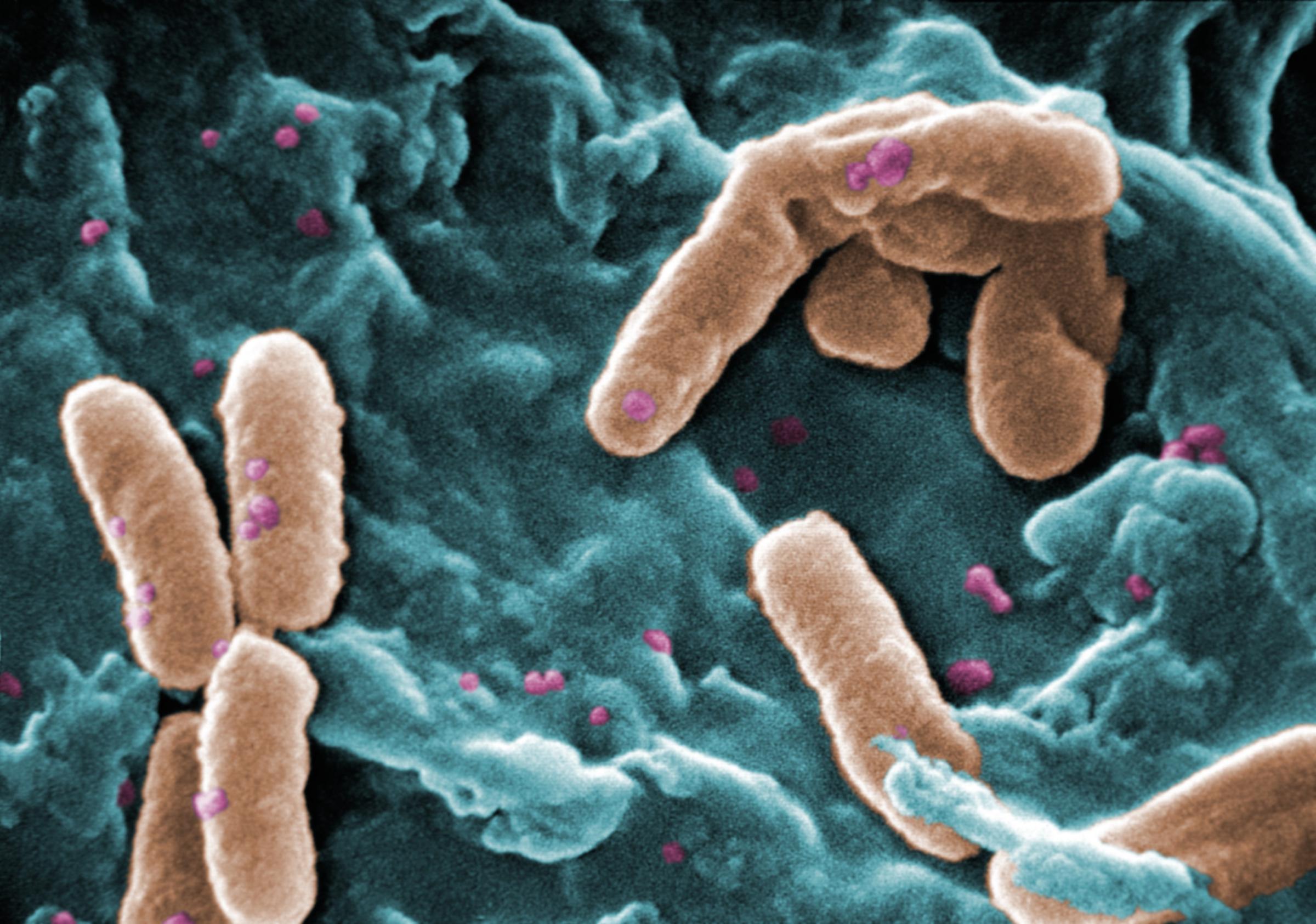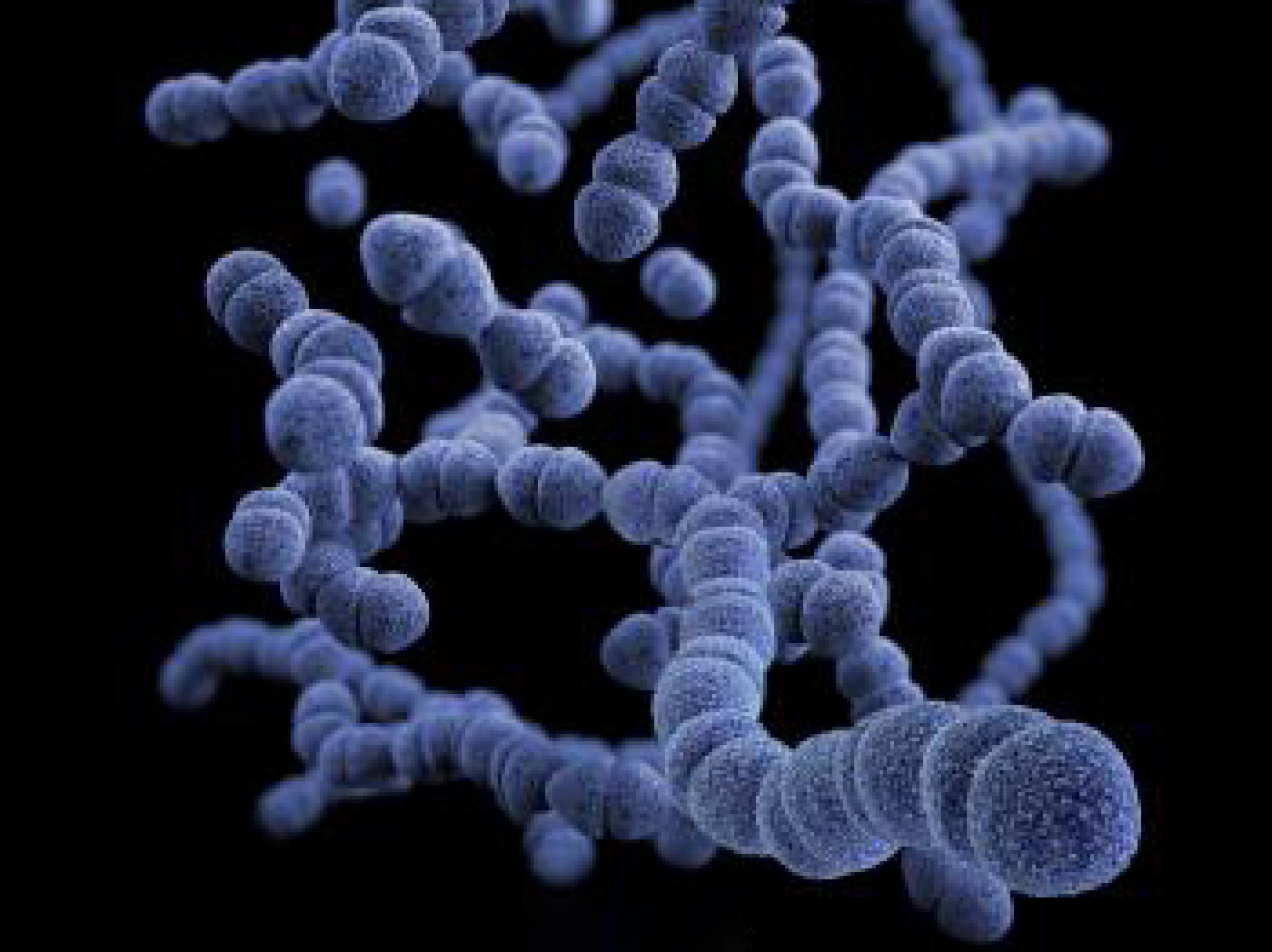The rise of antimicrobial-resistant microbes has led to an urgent need to preserve the efficacy of current antibiotics, develop new ones and identify alternative treatment strategies. NIAID has a substantial research program to spur development of new therapeutics against drug-resistant viruses, bacteria, parasites, and fungi and to identify alternative approaches.
Novel Antibiotics
NIAID-supported researchers are working to develop and advance promising therapeutics. Most bacteria are classified as gram-positive or gram-negative. Gram-negative bacteria, such as Pseudomonas aeruginosa and carbapenem-resistant Enterobacteriaceae (CRE), have a double membrane that cannot be penetrated by many antibiotics. They also have special proteins called efflux pumps that eject antibiotics out of the cell. These features make gram-negative bacterial infections difficult to treat.
NIAID is funding research projects that aim to develop models and tests to predict and measure the potency of candidate therapeutics based on an understanding of how molecules enter and leave gram-negative pathogens. Researchers are also working to develop novel drugs that directly target efflux pumps or the biofilm that protects some bacteria from the immune system.
NIAID also has supported clinical trials evaluating novel antibiotics against gram-negative infections. An NIAID-supported Phase 2 clinical trial showed that the novel oral antibiotic zoliflodacin was well-tolerated and successfully cured most cases of uncomplicated gonorrhea. Researchers also are exploring combination therapies to treat gram-negative infections that target both the bacteria’s essential functions and factors contributing to resistance.
In another effort to identify novel antibiotics, scientists are exploring potential antimicrobial compounds from nature, including new classes of antibiotics found in soil.
NIAID supports the global nonprofit public-private partnership called Combating Antibiotic-Resistant Bacteria Biopharmaceutical Accelerator (CARB-X). The partnership aims to accelerate a diverse portfolio of antibacterial products toward clinical development. CARB-X prioritizes treatments for CDC and WHO-defined target pathogens, including C. difficile, MRSA, CRE, N. gonorrhoeae and Acinetobacter.
Optimizing Existing Antibiotics
NIAID-supported clinical trials are testing optimized treatment regimens of older antibiotics to more effectively treat infections and suppress the emergence of resistance. For example, NIAID is funding a trial testing an intravenous formulation of the antibiotic fosfomycin as a treatment for bacterial lung infections. Additional trials are exploring the most effective duration of treatment for pediatric urinary tract infections and community-acquired pneumonia. Researchers also are studying combination therapy regimens. One trial is testing whether the antibiotic colistin alone or colistin combined with a carbapenem is effective in treating multi-drug resistant gram-negative bacterial infections and in reducing the emergence of resistance to colistin.
Microbiome-based Approaches
Scientists are exploring non-traditional approaches to treating antibacterial-resistant infections, including live microbiome-based therapeutic products. NIAID scientists collaborated with researchers in Thailand on a project that showed that Bacillus, a “good” bacterium commonly found in probiotic digestive supplements helps eliminate Staphylococcus aureus. NIAID also is exploring the use of fecal microbiota transplantation for the treatment of recurrent Clostridium difficile-associated disease (CDAD), a potentially life-threatening diarrheal illness. The process involves putting stool that has been pre-screened for infectious agents and antibiotic-resistant organisms from a healthy donor in the colon of a recipient to restore a healthy and diverse gut microbiome.
Phage Therapy
Bacteriophages (phages) are viruses that selectively infect and kill bacteria. Phage therapy has been used to treat patients with severe, multi-drug-resistant infections under compassionate use conditions with promising results. However, knowledge gaps hinder the development and regulation of phage therapy in the U.S. NIAID plans to support researchers who are developing novel platforms for the discovery of new phages and are working to improve our understanding of how phages interact with their bacterial host, antibiotics, and the human immune system.




